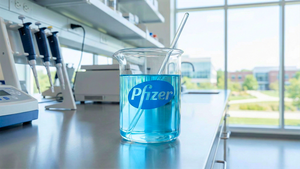Financial News
Daiichi Sankyo Highlights Progress Across Oncology Portfolio in Multiple Solid and Blood Cancers at ESMO Asia, SABCS and ASH
- Three late-breaking presentations across lung and breast cancer trials of three DXd ADCs to be showcased
- Science & Technology Day to provide overview of data and strategy across Daiichi Sankyo R&D pipeline
Daiichi Sankyo (TSE: 4568) will present new clinical research across its oncology portfolio with more than 45 abstracts in multiple types of solid and blood cancers at the 2024 ESMO Asia Congress (#ESMOAsia24), San Antonio Breast Cancer Symposium (#SABCS24) and American Society of Hematology (#ASH24) Annual Meeting prior to its Science & Technology Day.
Data at ESMO Asia, SABCS and ASH will showcase Daiichi Sankyo’s progress towards its goal of creating new standards of care for patients with cancer. Highlights include three late-breaking presentations, including a pooled analysis of data from the TROPION-Lung05 phase 2 and TROPION-Lung01 phase 3 trials of datopotamab deruxtecan (Dato-DXd) in patients with EGFR-mutated advanced non-small cell lung cancer (NSCLC) at ESMO Asia, as well as a subgroup analysis from the DESTINY-Breast06 phase 3 trial of ENHERTU® (trastuzumab deruxtecan) in patients with unresectable or metastatic HR positive, HER2 low (IHC 1+ or IHC 2+/ISH-) or HER2 ultralow (IHC 0 with membrane staining) breast cancer and the primary analysis from the VALENTINE phase 2 trial of patritumab deruxtecan (HER3-DXd) in patients with early HR positive, HER2 negative breast cancer at SABCS.
“Important updates in difficult-to-treat cancers including lung, breast, gastric and biliary tract cancer as well as acute myeloid leukemia and peripheral T-cell lymphoma will be highlighted at these upcoming meetings,” said Ken Takeshita, MD, Global Head, R&D, Daiichi Sankyo. “We continue to make important progress with our approved and pipeline medicines with the goal of changing the standard of care across a wide range of cancers.”
Innovation in Lung, Breast, Gastric and Biliary Tract Cancer at ESMO Asia
Late-breaking data at ESMO Asia will highlight a pooled analysis of results from the TROPION-Lung05 phase 2 and TROPION-Lung01 phase 3 trials of datopotamab deruxtecan in patients with previously treated EGFR-mutated advanced NSCLC during a proffered paper session.
Two mini oral presentations will feature results of the TROPION-Breast01 phase 3 trial of datopotamab deruxtecan in Chinese patients with previously treated metastatic HR positive, HER2 low or negative breast cancer and the final results of the DESTINY-Gastric06 phase 2 trial of ENHERTU in Chinese patients with previously treated HER2 positive advanced gastric or gastroesophageal junction (GEJ) adenocarcinoma. Results of DESTINY-Gastric06 led to the recent conditional approval in China of ENHERTU as a monotherapy for the treatment of adult patients with locally advanced or metastatic HER2 positive gastric or GEJ adenocarcinoma who have received two or more prior treatment regimens.
Trials-in-progress posters also will feature the trial designs of three ongoing ENHERTU clinical trials, including the DESTINY-BTC01 phase 3 trial that will evaluate ENHERTU with rilvegostomig, AstraZeneca’s PD-1/TIGIT bispecific antibody, versus standard of care in patients with previously untreated HER2 expressing, locally advanced or metastatic biliary tract cancer, and the DESTINY-Gastric03 phase 1b/2 trial where a new arm has been added to evaluate ENHERTU in combination with rilvegostomig and chemotherapy in patients with HER2 positive or HER2 low gastric or GEJ adenocarcinoma. A second part of the DESTINY-PanTumor02 phase 2 trial of ENHERTU also will be presented where patients with previously treated HER2 expressing metastatic solid tumors will be enrolled into one of five new cohorts: patients with any tumor expressing HER2 IHC 3+ (excluding breast, gastric and colorectal cancer); patients with any tumor expressing HER2 IHC 2+/ISH+ (excluding breast, gastric and colorectal cancer); patients with HER2 IHC 2+/1+ endometrial cancer; patients with HER2 IHC 2+/1+ ovarian cancer; and patients with HER2 IHC 2+/1+ cervical cancer.
Continued Progress in Breast Cancer at SABCS
Late-breaking presentations in breast cancer at SABCS will include two oral presentations featuring a subgroup analysis of the DESTINY-Breast06 phase 3 trial reporting on the impact of response to prior endocrine-based therapy on outcomes in patients with unresectable or metastatic HR positive, HER2 low or HER2 ultralow breast cancer who failed at least one line of endocrine therapy receiving ENHERTU compared to chemotherapy, and the primary results from the VALENTINE phase 2 trial evaluating neoadjuvant patritumab deruxtecan (HER3-DXd) alone or in combination with letrozole in patients with high-risk HR positive, HER2 negative early breast cancer.
Other data at SABCS includes two spotlight poster presentations highlighting the first exploratory biomarker analysis assessing the impact of genomic alterations on the efficacy of ENHERTU compared to ado-trastuzumab emtansine (T-DM1) in patients with HER2 positive metastatic breast cancer from the DESTINY-Breast03 phase 3 trial, and the effects of ENHERTU on health-related quality of life and neurological function from the DESTINY-Breast12 phase 3b/4 trial in patients with previously treated HER2 positive metastatic breast cancer with or without brain metastases. Final results from the dose expansion portion of the DESTINY-Breast08 phase 1b trial evaluating ENHERTU in combination with capecitabine or capivasertib in patients with HER2 low metastatic breast cancer also will be presented as a poster presentation.
Trial-in-progress posters will feature the trial designs from a sub-protocol of a phase 1b master protocol trial evaluating ENHERTU in combination with valemetostat, a dual EZH1 and EZH2 inhibitor, in patients with previously treated HER2 low unresectable or metastatic breast cancer as well as a phase 1b trial evaluating the combination in patients with previously treated HER2 low, HER2 ultralow or HER2 null metastatic breast cancer.
Updates in Hematology Portfolio in Certain Leukemias and Lymphomas
At ASH, several sub-analyses of the QuANTUM-First phase 3 trial of VANFLYTA® (quizartinib) in patients with newly diagnosed FLT3-ITD positive acute myeloid leukemia (AML) will be presented. An oral presentation will highlight data on the frequency of co-mutations in trial patients and their impact on remission rate, overall survival and relapse-free survival. Three poster presentations will report new data, including the impact of continuation therapy on the efficacy of VANFLYTA, focusing on measurable residual disease status; a concordance between utilizing a FLT3-ITD mutation detection clinical trial assay and a next-generation sequencing measurable residual disease assay; and a matching adjusted indirect comparison analysis of VANFLYTA compared to midostaurin in patients with newly diagnosed FLT3-ITD AML.
Additionally, several poster presentations will report on the QUIWI phase 2 trial that evaluated VANFLYTA in combination with standard chemotherapy in patients with newly diagnosed FLT3-ITD negative AML, including the final results of QUIWI and sub-analyses of the trial by mutational status, including FLT3-TKD and NPM1, and ELN risk categorization. The QUIWI phase 2 trial formed the basis of the QuANTUM-Wild phase 3 trial that is further evaluating the addition of VANFLYTA to standard chemotherapy in this patient population. The design of the QuANTUM-Wild phase 3 trial will be highlighted as a trial-in-progress poster.
Other data at ASH includes two poster presentations reporting the primary results of the VALYM phase 2 trial of valemetostat in patients with relapsed or refractory large B-cell lymphoma and an exploratory analysis of circulating tumor DNA, a novel biomarker, to potentially predict clinical response to valemetostat from the VALENTINE-PTCL01 phase 2 trial in patients with relapsed or refractory peripheral T-cell lymphoma, which was recently published in The Lancet Oncology.
Science & Technology Day
Daiichi Sankyo will hold “Science & Technology Day,” formerly called R&D Day, for investors on Monday, December 16, 2024 from 5:30 to 7:30 pm EST / Tuesday, December 17 from 7:30 to 9:30 am JST. Executives from Daiichi Sankyo will provide an overview of the ESMO Asia, SABCS and ASH research data and provide updates on R&D strategy.
ESMO Asia, SABCS and ASH Data Highlights
Highlights of data from Daiichi Sankyo’s DXd ADC portfolio at ESMO Asia 2024 include:
Presentation Title |
Author |
Abstract |
Presentation (SGT) |
|
Datopotamab Deruxtecan (Dato-DXd) |
||||
Lung Cancer |
Efficacy and safety of datopotamab deruxtecan (Dato-DXd) in patients with previously treated EGFR-mutated advanced non-small cell lung cancer: a pooled analysis of TROPION-Lung01 and TROPION-Lung05 |
M. Ahn |
Proffered Paper Session Friday, December 6 10:15 - 11:45 am |
|
|
|
|
|
|
Breast Cancer |
Datopotamab deruxtecan (Dato-DXd) vs chemotherapy in patients with pre-treated inoperable/metastatic hormone receptor positive, HER2 negative breast cancer: results from TROPION-Breast01 China cohort |
S. Wang |
|
Mini Oral Session Saturday, December 7 2:30 - 3:40 pm
|
ENHERTU (trastuzumab deruxtecan; T-DXd) |
||||
Gastric Cancer |
Trastuzumab deruxtecan (T-DXd) in Chinese patients with previously treated HER2 positive advanced gastric or gastroesophageal junction adenocarcinoma: DESTINY-Gastric06 final analysis |
Z. Peng |
Mini Oral Session Saturday, December 7 9:00 - 10:40 am
|
|
A phase 1b/2 open-label study evaluating trastuzumab deruxtecan (T-DXd) in combination with rilvegostomig and chemotherapy in patients with HER2 positive and HER2 low gastric or gastroesophageal junction adenocarcinoma: DESTINY-Gastric03 part 4 |
Y. Janjigian |
Poster Session December 7, 2024 5:50 - 6:45 pm
|
||
|
||||
PanTumor |
Randomized, open-label, multicenter, phase 3 study of trastuzumab deruxtecan (T-DXd) with rilvegostomig vs standard of care in first-line HER2 expressing, locally advanced or metastatic biliary tract cancer: DESTINY-BTC01 |
M. Ikeda |
Poster Session December 7, 2024 5:50 – 6:45 pm |
|
An open-label, multicenter, phase 2 study of trastuzumab deruxtecan (T-DXd) in patients with HER2 expressing solid tumors: DESTINY-PanTumor02 part 2 |
J. Lee |
Poster Session December 7, 2024 5:50 – 6:45 pm |
||
Highlights of data from Daiichi Sankyo’s DXd ADC portfolio at SABCS 2024 include:
Presentation Title |
Author |
Abstract |
Presentation (CST) |
|
ENHERTU (trastuzumab deruxtecan; T-DXd) |
||||
HER2 Low & HER2 Ultralow Breast Cancer |
Efficacy and safety of trastuzumab deruxtecan (T-DXd) vs physician’s choice of chemotherapy by pace of disease progression on prior endocrine-based therapy: an additional analysis from DESTINY-Breast06 |
A Bardia
|
Oral Session Tuesday, December 10 6:00 – 7:00 pm |
|
Trastuzumab deruxtecan in combination with capecitabine or capivasertib in patients with HER2 low metastatic breast cancer: a phase 1b, multicenter, open-label study (DESTINY-Breast08) |
K. Jhaveri |
Poster Session Thursday, December 12 12:30 - 2:00 pm
|
||
A real-world study of the effectiveness and safety of trastuzumab deruxtecan in HER2 low metastatic breast cancer among racial and ethnic minorities and older populations in the United States |
M. Henderson |
Poster Session Wednesday, December 11 5:30 - 7:00 pm |
||
Agreement between the DESTINY-Breast04/06 VENTANA 4B5 HER2 IHC clinical trial assay and other comparator assays for HER2 low breast cancer: overall results of a large-scale, multicenter global ring study |
G. Viale |
Poster Session Wednesday, December 11 12:30 - 2:00 pm |
||
Trastuzumab deruxtecan in HER2 low metastatic breast cancer patients with newly diagnosed or progressing brain metastases: the TUXEDO-4 phase II trial |
M. Marhold |
Poster Session Thursday, December 12 12:30 - 2:00 pm |
||
Re-evaluation of human epidermal growth factor receptor 2 (HER2) immunohistochemistry (IHC) 0 or 1+ in metastatic breast cancer samples to characterize the proportion of HER2 ultralow (IHC 0 with membrane staining) |
S. Krishnamurthy |
Poster Session Thursday, December 12 12:30 – 2:00 pm
|
||
Valemetostat and trastuzumab deruxtecan in patients with HER2 low, previously treated, unresectable or metastatic breast cancer |
S. Tolaney |
Poster Session Thursday, December 12 12:30 - 2:00 pm |
||
Phase 1b study of EZH1/2 inhibitor valemetostat in combination with trastuzumab deruxtecan in subjects with HER2 low/ultra-low/null metastatic breast cancer |
T. Iwase |
Poster Session Thursday, December 12 12:30 - 02:00 pm |
||
|
||||
HER2 Positive Breast Cancer |
Exploratory biomarker analysis of trastuzumab deruxtecan vs trastuzumab emtansine efficacy in human epidermal growth factor receptor 2-positive metastatic breast cancer in DESTINY-Breast03 |
W. Jacot |
Spotlight Poster Session Thursday, December 12 7:00 - 8:30 am
|
|
Effects of trastuzumab deruxtecan (T-DXd) on health-related quality of life and neurological function in patients with HER2+ advanced/metastatic breast cancer with or without brain metastases: DESTINY-Breast12 results |
N. Harbeck
|
Spotlight Poster Session Friday, December 13 7:00 – 8:30 am |
||
Real-world analysis of interstitial lung disease in patients with HER2-positive unresectable or recurrent breast cancer treated with trastuzumab deruxtecan: all-patient post-marketing surveillance study in Japan |
J. Tsurutani |
Poster Session Wednesday, December 11 12:30 – 2:00 pm
|
||
HER2 Expressing Breast Cancer |
Trastuzumab deruxtecan with pembrolizumab in previously treated HER2 expressing advanced or metastatic breast cancer: interim analyses of the breast cohorts from the open-label, multicenter, phase 1b study DS8201-A-U106
|
H. Rugo |
Poster Session Friday, December 13 12:30 - 2:00 pm
|
|
Patritumab Deruxtecan (HER3-DXd) |
||||
HR Positive, HER2 Negative Breast Cancer |
Primary results of SOLTI VALENTINE: neoadjuvant randomized phase II trial of HER3-DXd alone or in combination with letrozole for high-risk hormone receptor positive/HER2-negative early breast cancer |
M. Oliveira
|
Oral Presentation Tuesday, December 10 6:00 - 7:00 pm |
|
ICARUS-BREAST02: safety, tolerability, and anti-tumor activity of patritumab deruxtecan (HER3-DXd) monotherapy and combinations in patients with inoperable advanced breast cancer following progression on trastuzumab deruxtecan (T-DXd) |
B. Pistilli |
Poster Presentation Wednesday, December 11 5:30 - 7:00 pm
|
||
Highlights of data from Daiichi Sankyo’s hematology portfolio at ASH 2024 include:
Presentation Title |
Author |
Abstract |
Presentation (PST) |
|
VANFLYTA (quizartinib) |
||||
FTL3 -ITD Positive AML
|
Correlation of baseline gene mutations with quizartinib efficacy in patients with FLT3-ITD positive newly diagnosed acute myeloid leukemia in the phase 3 QuANTUM-First trial |
M. Levis |
Oral Presentation Monday, December 9 3:00 - 3:15 pm
|
|
QuANTUM-First: effects of quizartinib on RFS, OS, CIR, and MRD in newly diagnosed patients with FMS-like tyrosine kinase 3-internal tandem duplication positive (FLT3-ITD+) acute myeloid leukemia who received continuation therapy |
M. Levis |
Poster Presentation Sunday, December 8 6:00 - 8:00 pm
|
||
QuANTUM-First: deep-dive analysis of FMS-like tyrosine kinase 3-internal tandem duplication (FLT3-ITD) detection methods utilized for enrollment and longitudinal MRD detection in newly diagnosed patients with FLT3-ITD+ acute myeloid leukemia |
J. Rohrbach |
Poster Session Monday, December 9 6:00 - 8:00 pm
|
||
Anchored matching adjusted indirect treatment comparison of quizartinib vs midostaurin in newly diagnosed patients with FLT3-ITD positive acute myeloid leukemia |
S. Unni |
Poster Session Saturday, December 7 5:30 - 7:30 pm |
||
|
||||
FLT3-ITD Negative AML |
Trial in progress: the phase 3, randomized, double-blind, placebo-controlled QuANTUM-Wild study of quizartinib in combination with chemotherapy and as single-agent maintenance in newly diagnosed FLT3-ITD negative acute myeloid leukemia |
P. Montesinos |
Poster Session Saturday, December 7 5:30 – 7:30 pm |
|
Final results of QUIWI: a double blinded, randomized PETHEMA trial comparing standard chemotherapy plus quizartinib versus placebo in adult patients with newly diagnosed FLT3-ITD negative AML |
P. Montesinos |
Poster Session Saturday, December 7 5:30 - 7:30 pm
|
||
Enhanced validation of the FLT3-like gene expression signature as a predictive biomarker for quizartinib response in FLT3-ITD negative acute myeloid leukemia: expanded cohort and extended follow-up from the PETHEMA QUIWI trial |
A. Mosquera Orgueira
|
Poster Session Saturday, December 7 5:30 - 7:30 pm
|
||
Correlation of ELN-risk and gene mutations with quizartinib efficacy in patients with FLT3-ITD negative newly diagnosed acute myeloid leukemia in the phase 2 QUIWI PETHEMA trial |
R. Rodriguez- Viega
|
Poster Session Sunday, December 8 6:00 - 8:00 pm
|
||
Valemetostat (EZHARMIA in Japan only) |
||||
B-Cell & T-Cell Lymphomas |
Valemetostat monotherapy in patients with relapsed or refractory large B-cell lymphoma: primary results of the phase 2 VALYM study from the LYSA |
E. Bachy |
Poster Session Monday, December 9 6:00 - 8:00 pm |
|
Prediction of clinical response by phased variants in circulating tumor DNA (ctDNA) in the VALENTINE-PTCL01 trial of patients with relapsed or refractory peripheral T-cell lymphoma |
N. Mehta-Shah |
Poster Session Monday, December 9 6:00 - 8:00 pm
|
||
About the ADC Portfolio of Daiichi Sankyo
The Daiichi Sankyo ADC portfolio consists of seven ADCs in clinical development crafted from two distinct ADC technology platforms discovered in-house by Daiichi Sankyo.
The ADC platform furthest in clinical development is Daiichi Sankyo’s DXd ADC Technology where each ADC consists of a monoclonal antibody attached to a number of topoisomerase I inhibitor payloads (an exatecan derivative, DXd) via tetrapeptide-based cleavable linkers. The DXd ADC portfolio currently consists of ENHERTU, a HER2 directed ADC, and datopotamab deruxtecan (Dato-DXd), a TROP2 directed ADC, which are being jointly developed and commercialized globally with AstraZeneca. Patritumab deruxtecan (HER3-DXd), a HER3 directed ADC, ifinatamab deruxtecan (I-DXd), a B7-H3 directed ADC, and raludotatug deruxtecan (R-DXd), a CDH6 directed ADC, are being jointly developed and commercialized globally with Merck & Co., Inc, Rahway, NJ, USA. DS-3939, a TA-MUC1 directed ADC, is being developed by Daiichi Sankyo.
The second Daiichi Sankyo ADC platform consists of a monoclonal antibody attached to a modified pyrrolobenzodiazepine (PBD) payload. DS-9606, a CLDN6 directed PBD ADC, is the first of several planned ADCs in clinical development utilizing this platform.
Datopotamab deruxtecan, ifinatamab deruxtecan, patritumab deruxtecan, raludotatug deruxtecan, DS-3939 and DS-9606 are investigational medicines that have not been approved for any indication in any country. Safety and efficacy have not been established.
About Daiichi Sankyo
Daiichi Sankyo is an innovative global healthcare company contributing to the sustainable development of society that discovers, develops and delivers new standards of care to enrich the quality of life around the world. With more than 120 years of experience, Daiichi Sankyo leverages its world-class science and technology to create new modalities and innovative medicines for people with cancer, cardiovascular and other diseases with high unmet medical needs. For more information, please visit www.daiichisankyo.com.
View source version on businesswire.com: https://www.businesswire.com/news/home/20241127957948/en/
Contacts
Media Contacts:
Global/US Media:
Jennifer Brennan
Daiichi Sankyo, Inc.
jennifer.brennan@daiichisankyo.com
+ 1 908 900 3183 (mobile)
Japan Media:
DS-PR@daiichisankyo.co.jp
Investor Relations Contact:
DaiichiSankyoIR_jp@daiichisankyo.com
More News
View More




Recent Quotes
View More
Quotes delayed at least 20 minutes.
By accessing this page, you agree to the Privacy Policy and Terms Of Service.



